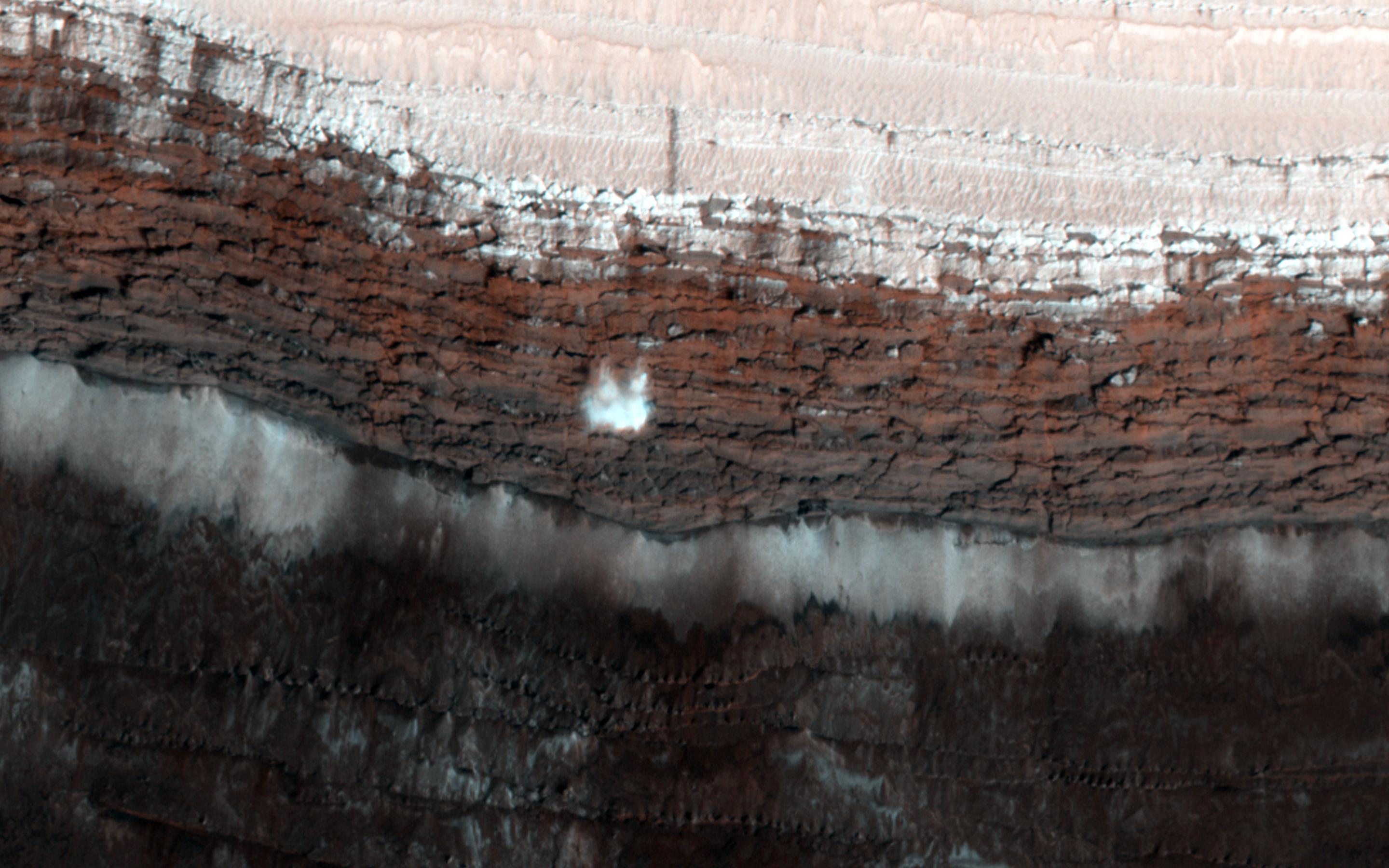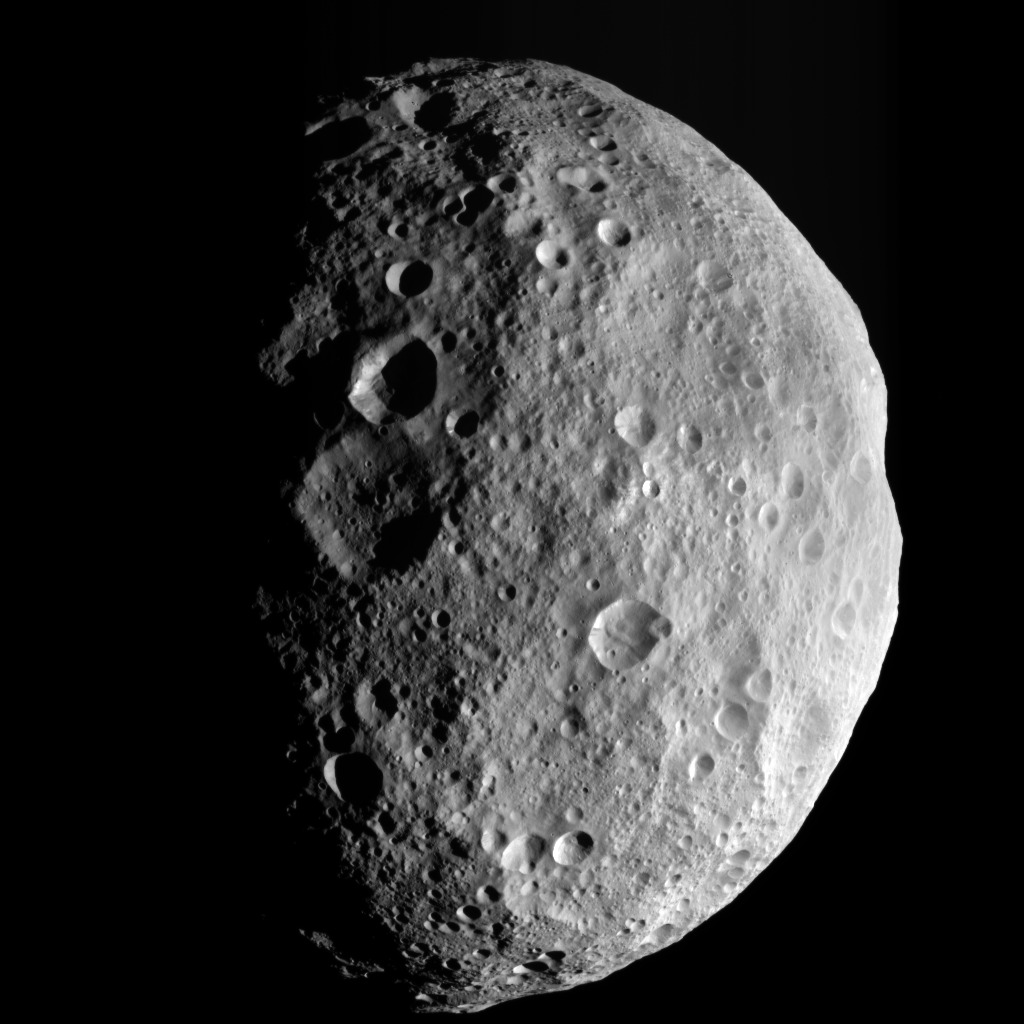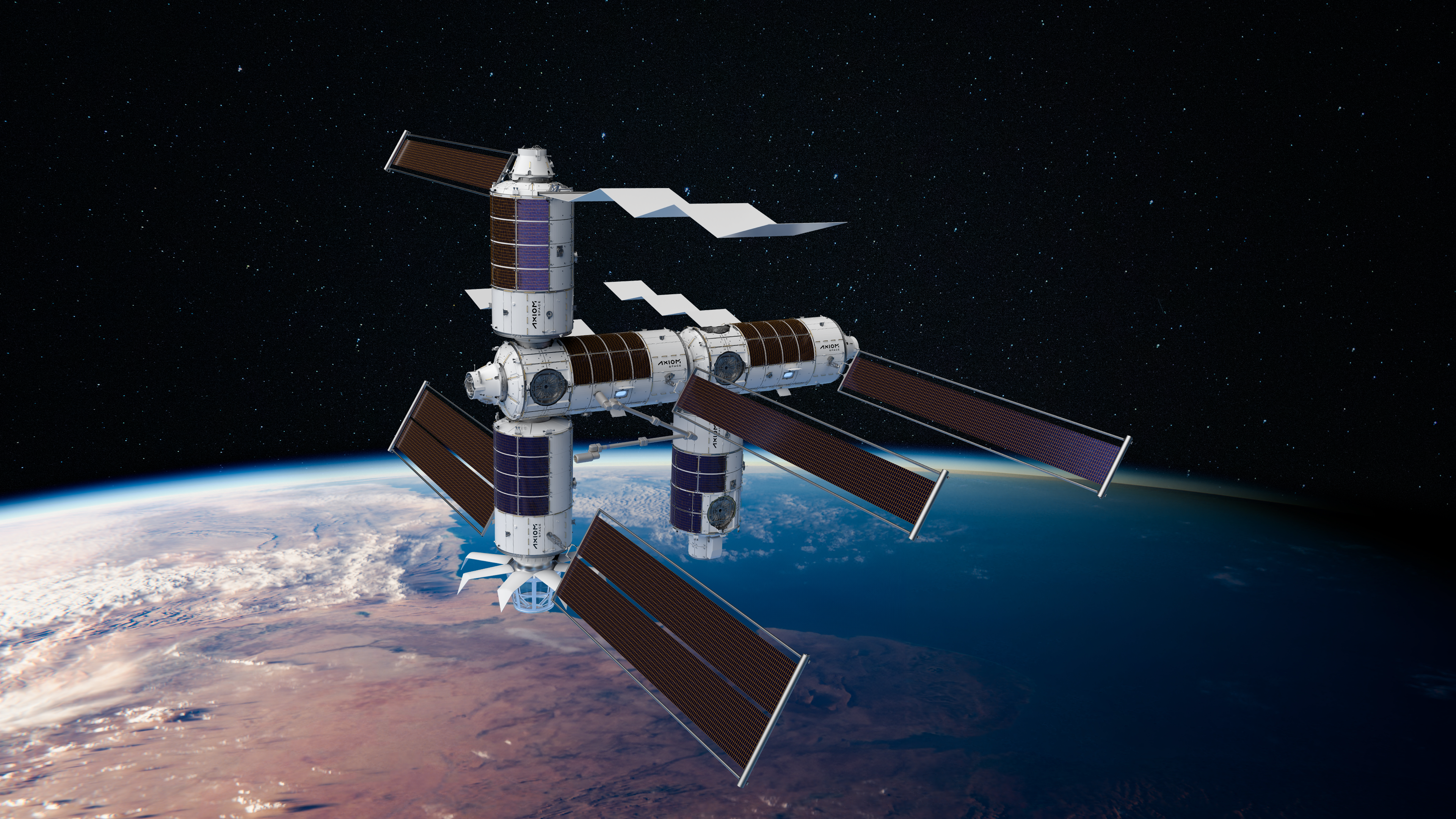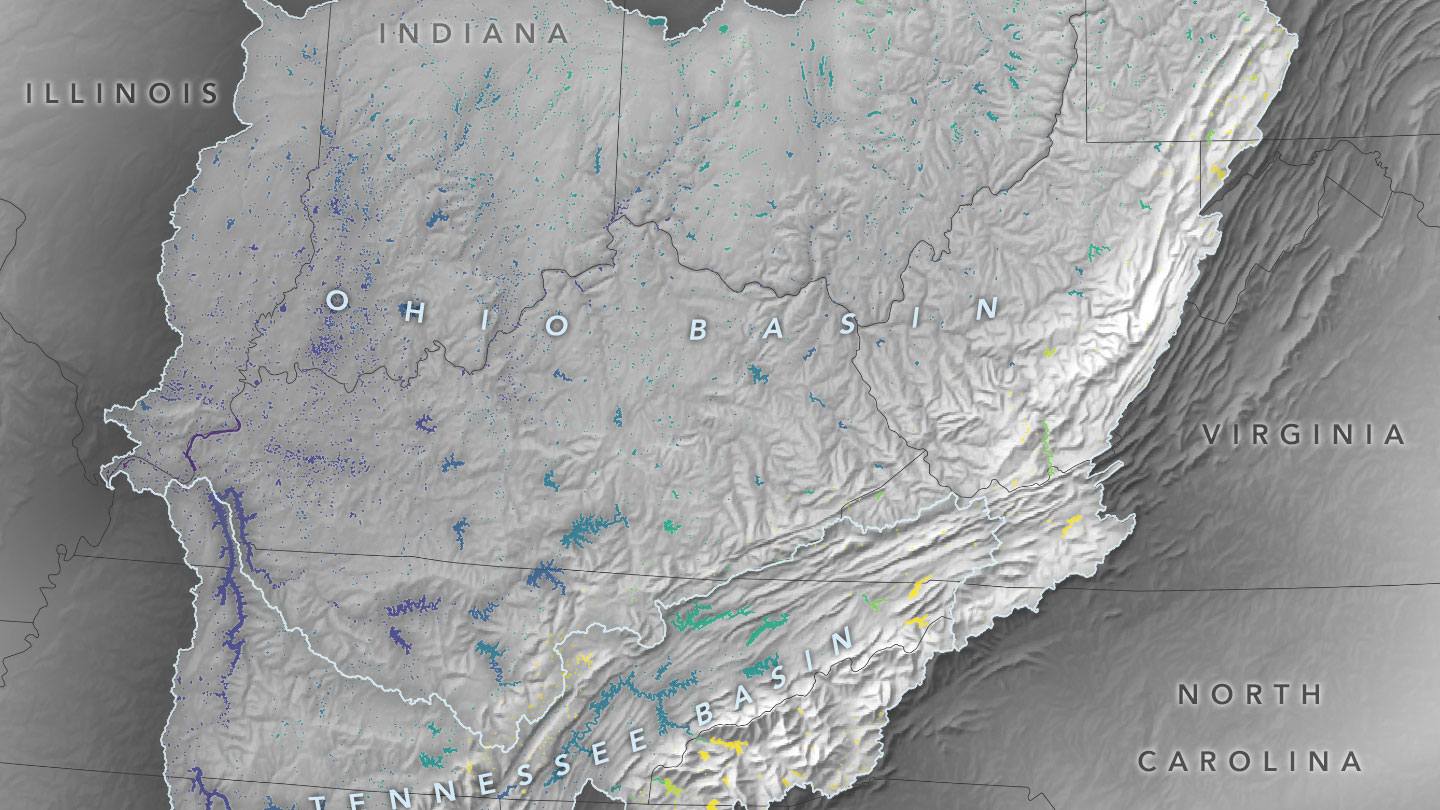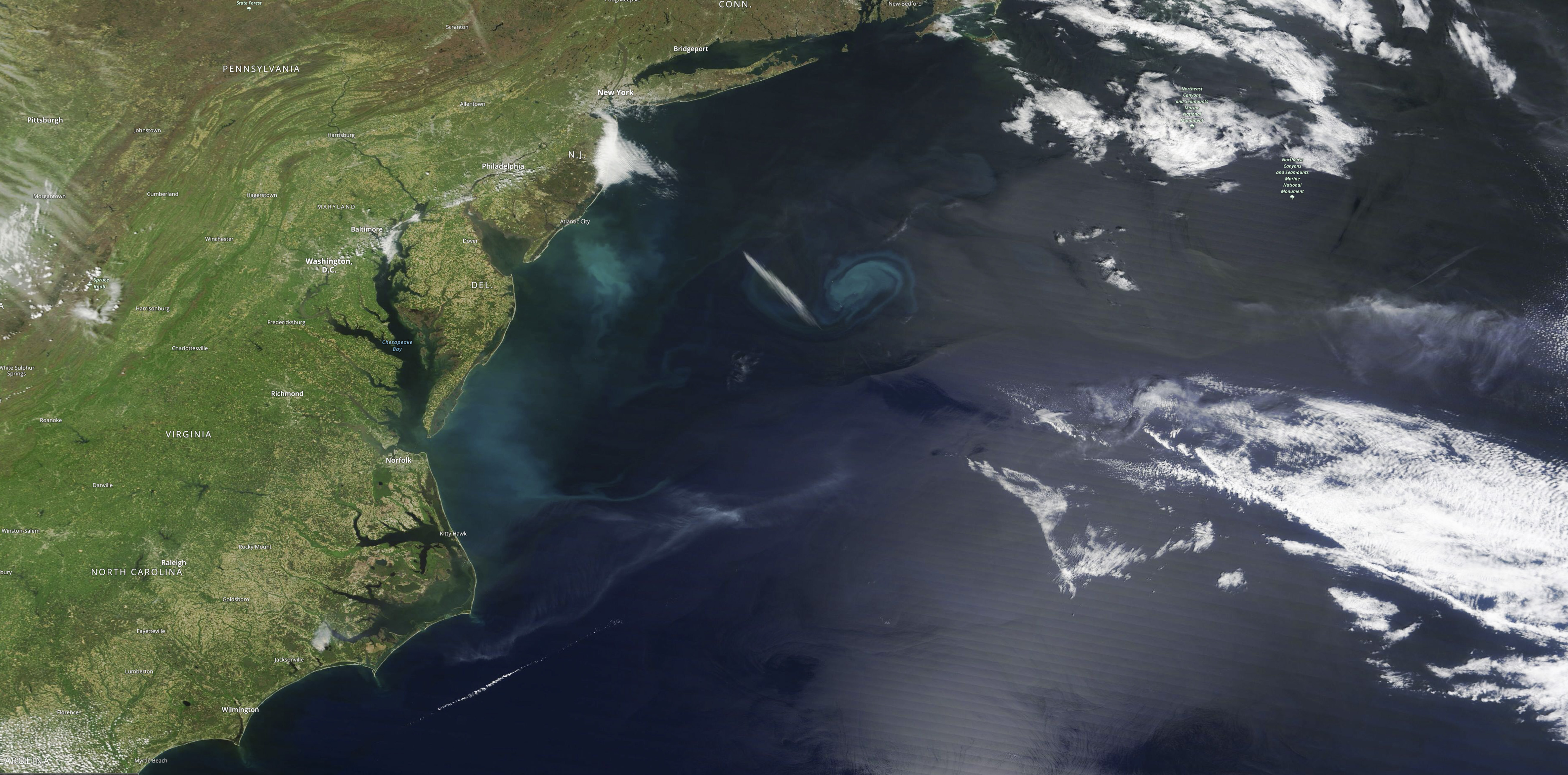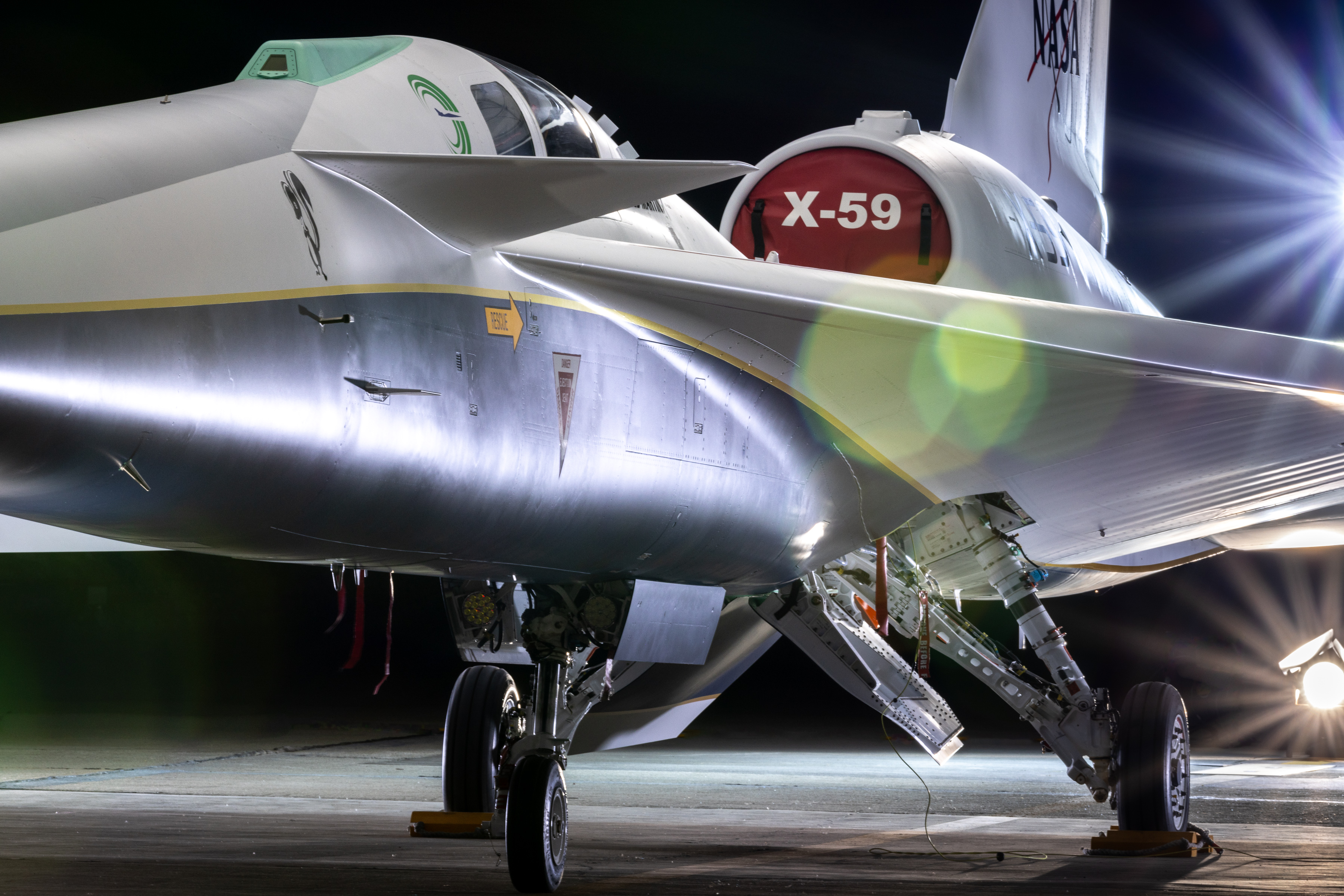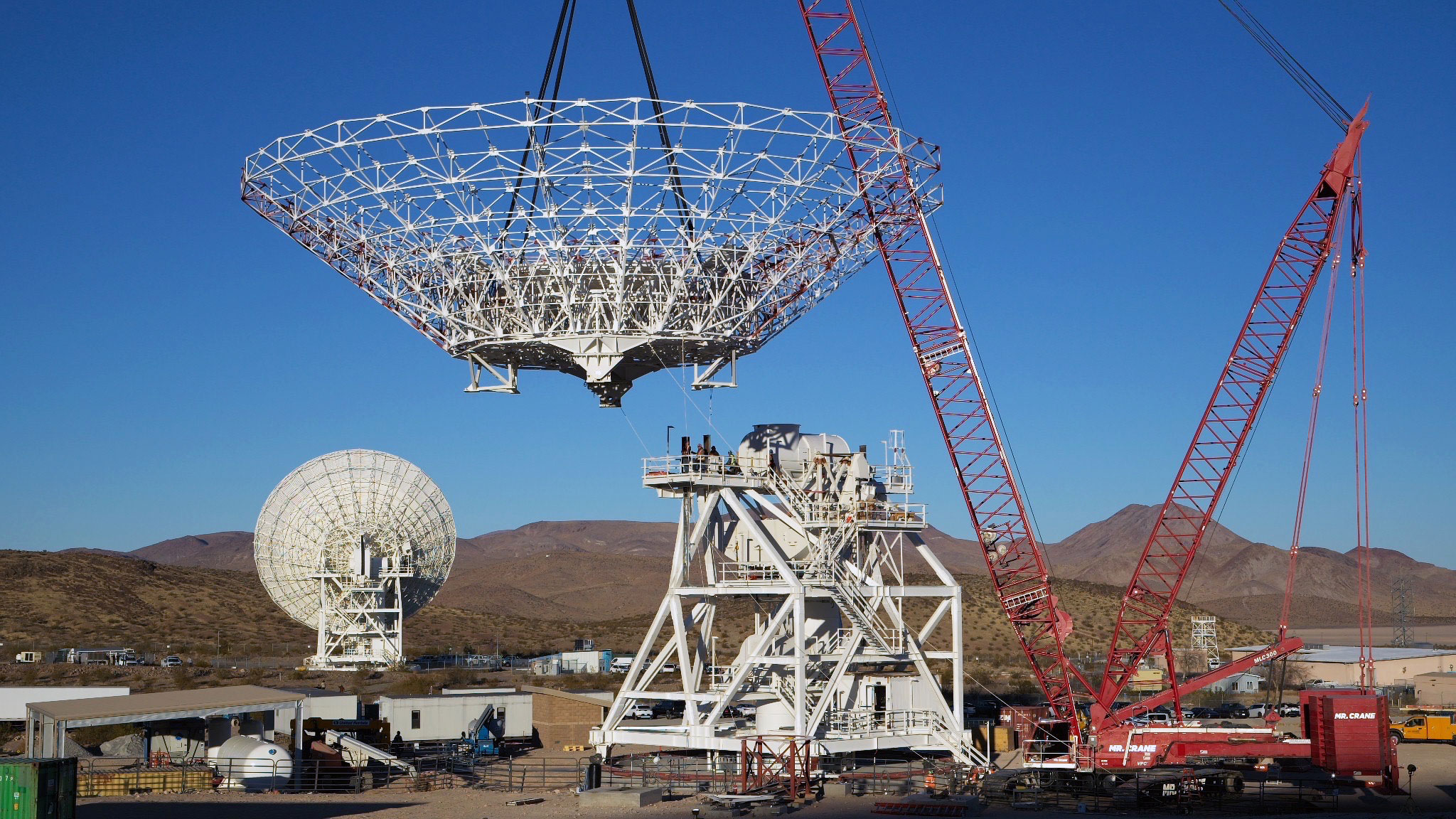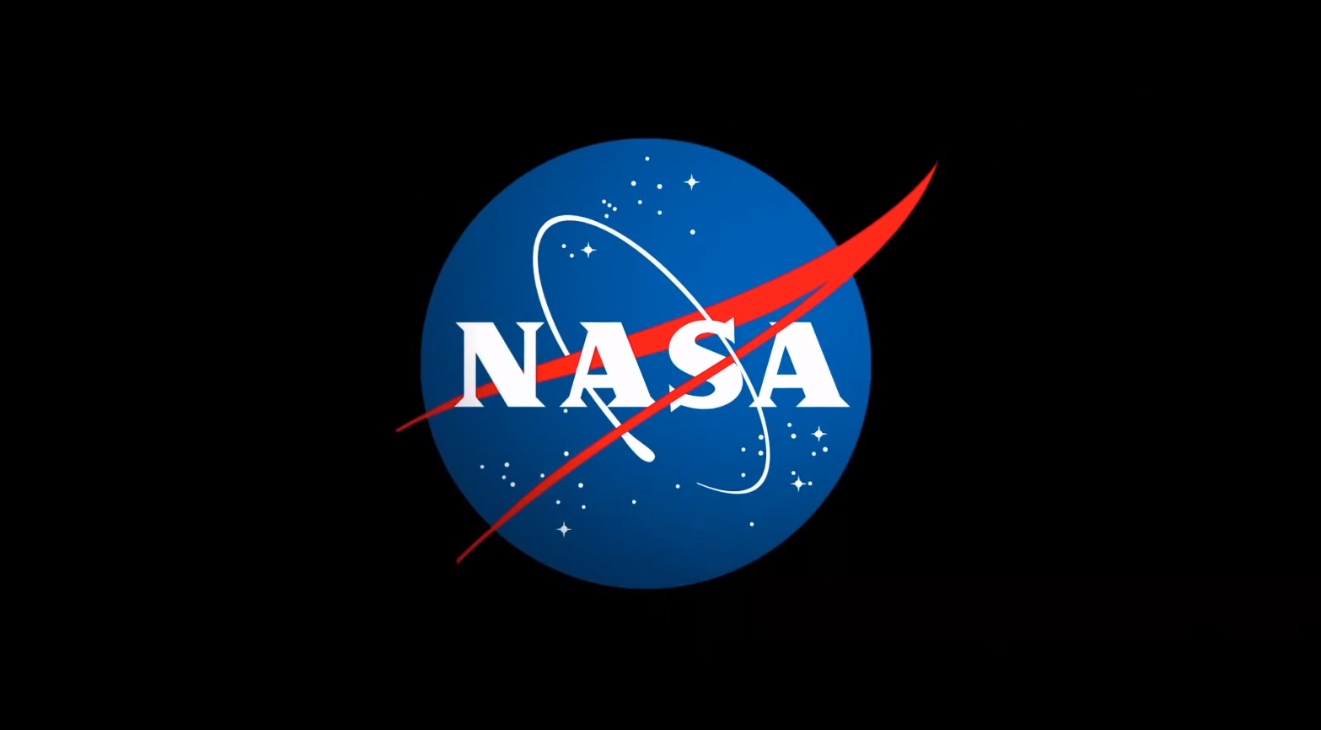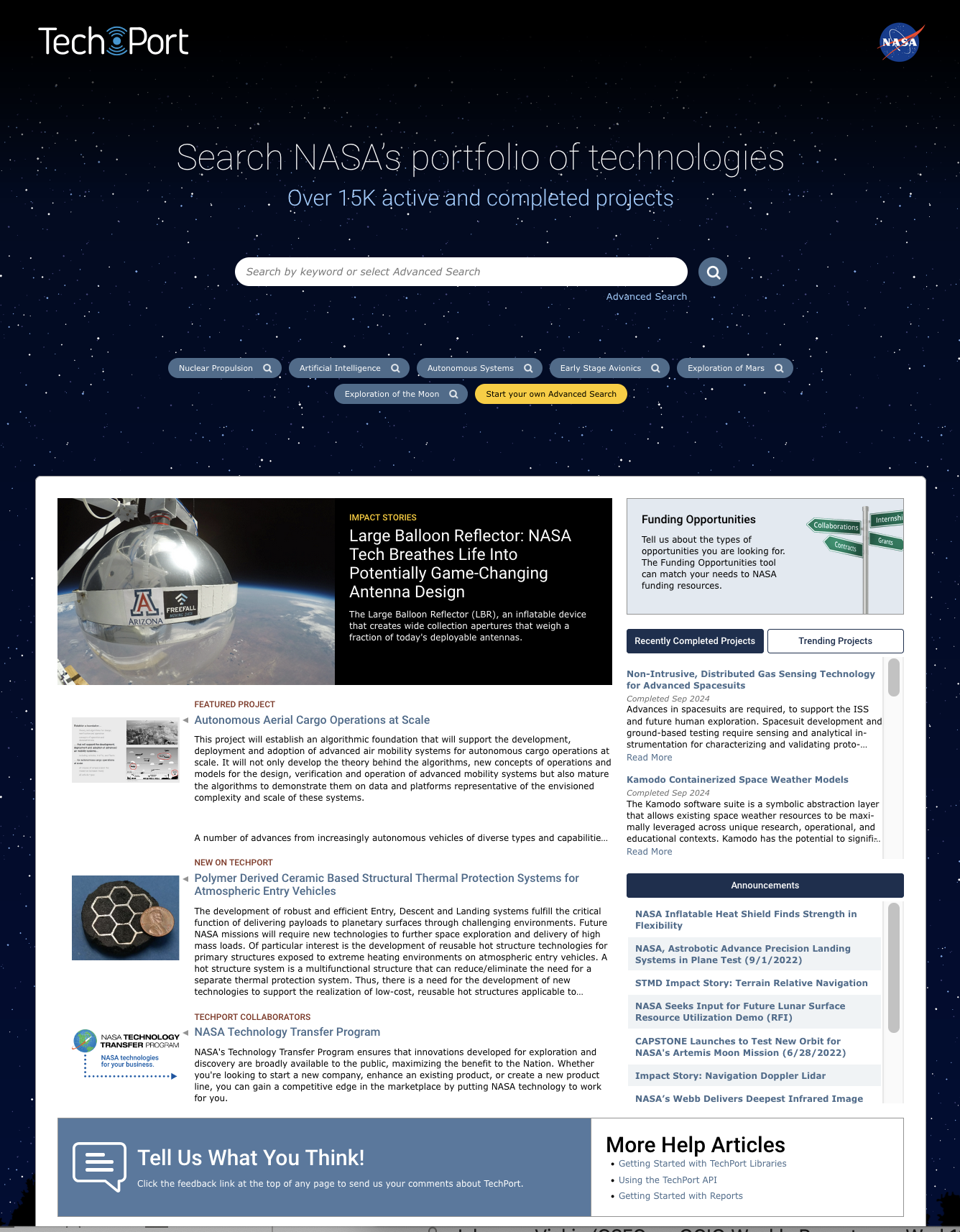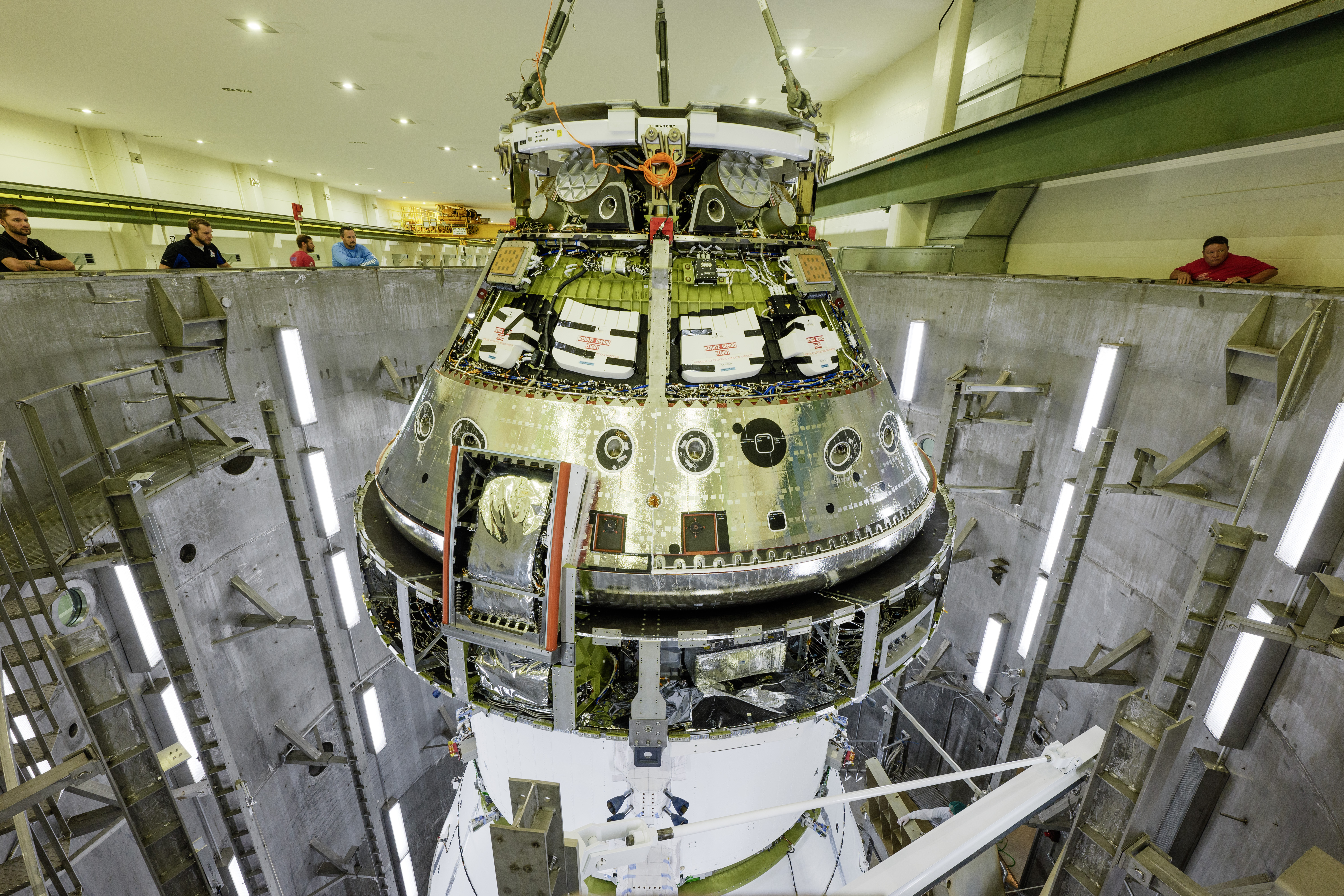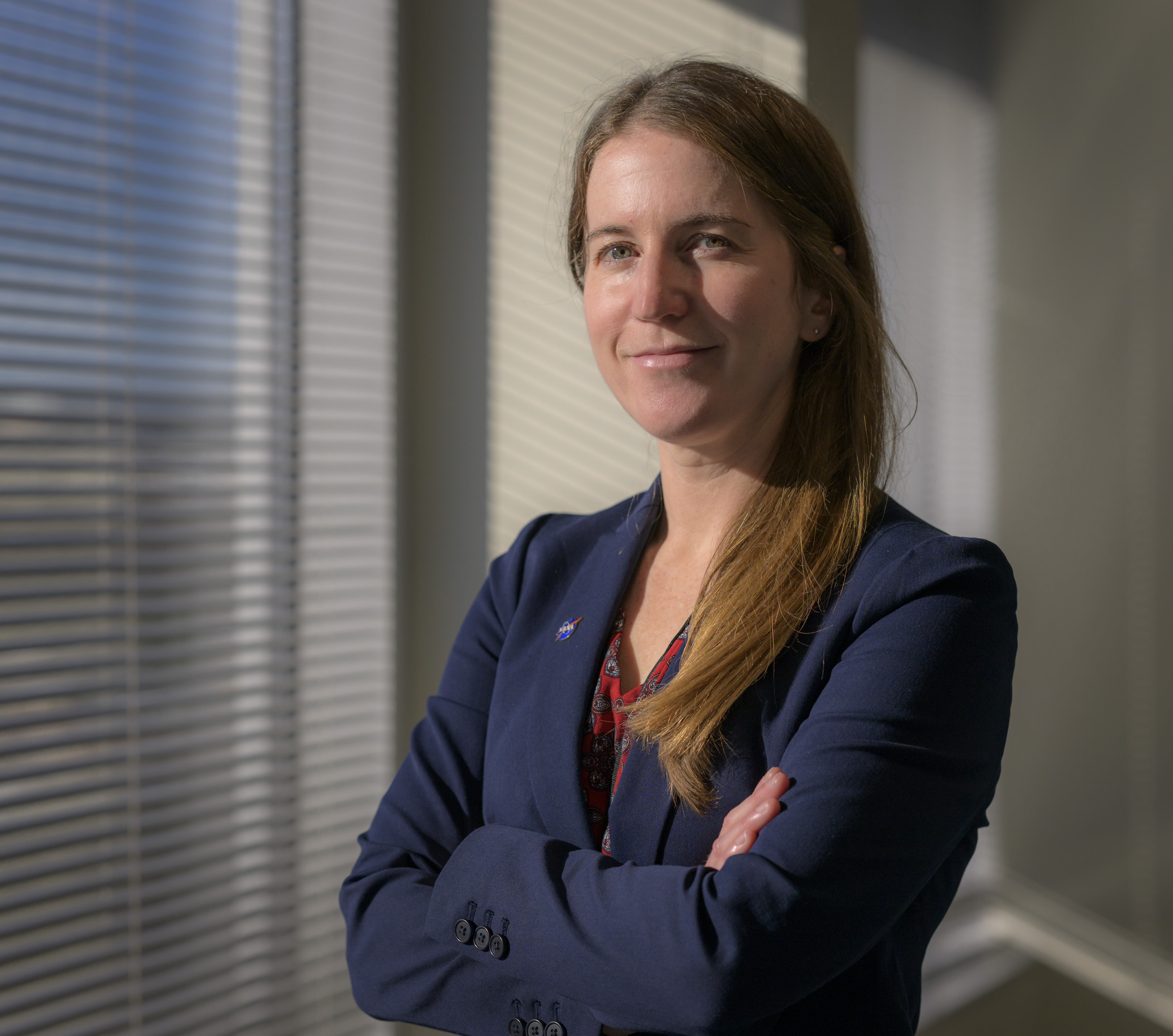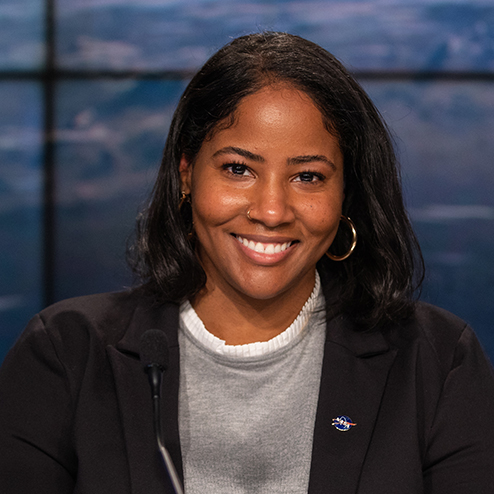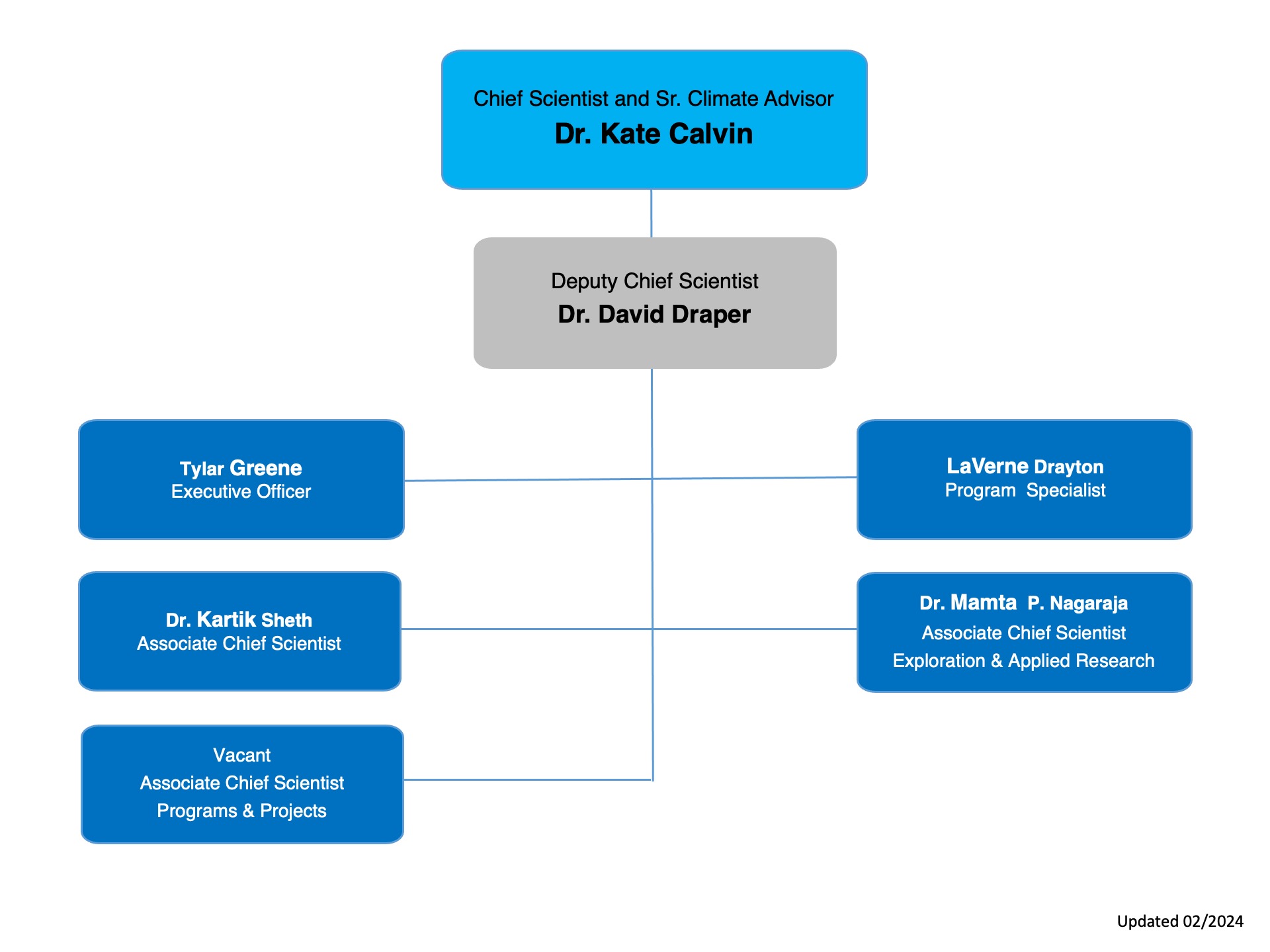About OCS
The Chief Scientist, supported by the Office of the Chief Scientist staff, serves as the principal advisor to the NASA Administrator on agency science programs, strategic planning and the evaluation of science programs and activities.
The Office of the Chief Scientist (OCS) represents all the scientific endeavors in the agency, ensuring they are aligned with and fulfill the administration’s science objectives. The OCS advises and advocates on behalf of the NASA Administrator on matters concerning Agency-wide science policy and programs in the context of broader government science agendas, and works closely with the White House Office of Science and Technology Policy and other government agencies. OCS also coordinates with representatives of the NASA mission directorates, field centers, and advisory committees on the content and objectives of the agency’s science research and exploration portfolio.
The Office of the Chief Scientist represents the agency’s strategic science objectives and accomplishments to the national and international science community, including other government agencies, scientific organizations, industry, academia, and the public, serving as a primary external interface regarding science issues and results on behalf of the Administrator. The OCS encourages and fosters science integration and cooperation across the Agency so that NASA funds only the most exemplary and meritorious science to enable NASA to achieve its mission. Currently, the Chief Scientist also holds the role of NASA’s Senior Climate Advisor and reports to the NASA Deputy Administrator.
The Office of the Chief Scientist works to:
- Provide independent assessment and advice to the Administrator on matters related to NASA science.
- Encourage and foster science integration and cooperation across the Agency, including the Mission Directorates and the Centers.
- Lead the development of Agency science strategy and ensure that NASA’s overarching Strategic Plan properly incorporates science goals and objectives.
- Perform scientific, technical, programmatic, and/or policy reviews to assure that NASA science programs are of the highest scientific and technologic merit and integrity.
- Provide independent portfolio analysis of significant science activities, as appropriate.
- Promote, communicate, and advocate for NASA’s overall science portfolio and strategy to the broad external community.
- Represent NASA in promoting and maintaining good public and community relations and providing for the widest practical and appropriate dissemination of information concerning science and space activities.
- Represent the Administrator to the NASA Advisory Council Science Committee, the National Academy of Sciences, Engineering, and Medicine, and other science advisory bodies.
- Serve as the Administrator’s NASA science representative to the international community.
- Provide support and guidance to NASA science organizations in their development and implementation of plans to address science policy, goals, objectives, metrics, and actions needed to execute the strategic goals and objectives in the NASA Strategic Plan.
- Work with the Center Directors to promote scientific vitality and innovation at the Centers.
In addition, OCS holds the responsibility for developing, maintaining, and implementing NASA’s Scientific Integrity policies. To that end, the Deputy Chief Scientist also serves as NASA’s Scientific Integrity Officer and is a member (along with select other NASA staff) on the National Science and Technology Committee’s Subcommittee on Scientific Integrity.
For inquiries please contact: hq-chiefscientist@mail.nasa.gov
OCS Staff
Dr. Katherine Calvin, NASA Chief Scientist
Dr. Katherine Calvin was appointed as NASA’s Chief Scientist and Senior Climate Advisor to Administrator Bill Nelson on Jan. 10, 2022.
As chief scientist, Calvin advises agency leadership on the agency’s science programs and science-related strategic planning and investments. As senior climate advisor, she provides insights recommendations for the agency’s climate-related science, technology, and infrastructure programs.
Calvin will serve in this capacity under the Intergovernmental Personnel Act Mobility Program, which provides for the temporary assignment of personnel between the federal government and state and local governments, colleges and universities, Indian tribal governments, federally funded research and development centers, and other eligible organizations.
Since 2008, Calvin has been an Earth scientist at the Pacific Northwest National Laboratory’s Joint Global Change Research Institute (JGCRI) in College Park, Maryland. She worked in JGCRI’s Global Change Analysis Model, a system for exploring and analyzing the relationships between human and Earth systems in the context of global climate change. She also worked on the Department of Energy’s Energy Exascale Earth System Model, a system for analyzing the past, present, and future state of the Earth system. Her research simulates the interaction between global resources, focusing on the impact of land, water, and energy use through an environmental and socioeconomic lens.
In her almost fourteen years at JGCRI, Calvin co-authored over 100 publications. Her recent publications have investigated growing populations against agriculture and water scarcity in the face of climate change.
Calvin served on a National Academy of Sciences research committee on models of the world, which was commissioned by the National Geospatial Intelligence Agency to create models for interrelated global systems such as economics, politics, and environment. She has contributed to the third U.S. National Climate Assessment as well as two special reports by the Intergovernmental Panel on Climate Change, with two more reports scheduled for publication in 2022. She also worked at the U.S. Energy Information Administration for two years as an international energy analyst.
Calvin received her doctorate in Management, Science, and Engineering from Stanford University and a bachelor of science in Computer Science and Mathematics from the University of Maryland.
Dr. David Draper, Deputy Chief Scientist
Deputy Chief Scientist David Draper joins the Office from NASA Johnson Space Center in Houston, Texas. He served as the Manager of the Astromaterials Research Office, Astromaterials Research and Exploration Science Division, Exploration Integration and Science Directorate, from June of 2009 to June of 2019. In this role he led a group of world-class planetary scientists specializing in the study of samples from other worlds to determine how the Solar System formed and evolved to its present state. Research Office scientists also have taken leading roles in NASA and international robotic spaceflight missions, including Mars Exploration Rovers, Mars Science Laboratory, OSIRIS-REx, and the Japanese space agency’s Hayabusa and Hayabusa2 missions. He served in numerous Division and Directorate leadership roles in helping chart the organization’s course in science and exploration.
Draper has 27 years of professional experience in studying the Earth, Moon, planets, and Solar System. These scientific studies explored frontier questions regarding characteristics, processes, and events of and on Earth, the Moon, and Mars. His scientific specialty is in experimental simulations at high temperatures and pressures of processes occurring within planetary interiors, such as the solidification of planetary magma oceans like those thought to have occurred on the Moon and Mars. He also has fifteen years’ experience helping organize the annual Lunar and Planetary Science Conference, serving as Program Committee Chair and co-Chair since 2009.
Draper’s education and training were in the geochemical and experimental study of terrestrial basalts, using them as probes of Earth’s upper mantle and to understand processes occurring in subduction zones and mantle plumes. This background was directly extensible to the study of rocky bodies in the Solar System. He hails from California and the Pacific Northwest, and has held academic positions in Texas and New Mexico, as well as postdoctoral appointments in the United Kingdom and Australia. He is passionately interested in United States and world history, as well as family genealogy, and is also a lifelong musician and amateur recording engineer.
Dr. Kartik Sheth
Dr. Kartik Sheth is a world-renowned observational astrophysicist whose scientific research has primarily been in the areas of galaxy formation and evolution, star formation and the interstellar medium. His somewhat non-traditional career path has taken him across government, academia, nonprofits, and influential roles within the White House. Currently, Dr. Sheth is concluding his second tenure at the White House, where he serves as the Program Examiner in the Office of Management and Budget. Responsible for managing an $8.5 billion budget for the Department of Energy’s Office of Science, his oversight encompasses diverse fields from Advanced Scientific Computing to Basic Energy Science, Fusion Science, High Energy and Nuclear Physics, and Biological and Environmental Research. Previously, Dr. Sheth held the position of Assistant Director for Research Infrastructures and Science Equity at the White House Office of Science & Technology Policy. His portfolio spanned a broad spectrum of scientific and technological domains, including advanced manufacturing, physical science, research and development, satellite constellations, and clean energy technologies.
Before his White House appointments, Dr. Sheth distinguished himself as a Program Scientist at NASA Headquarters in the Astrophysics Division, overseeing missions such as SphereX, Spitzer, SOFIA, and Webb. In the Earth Science Division he managed the VALUABLES consortium to assess the socioeconomic benefits of Earth observations, and also worked on advancing United Nations Sustainable Development Goals. Beyond his professional endeavors, Dr. Sheth is the visionary founder and CEO of Empowered Earth Alliance, a nonprofit organization empowering local leaders to develop sustainable solutions for climate resilience.
Dr. Sheth’s commitment to inclusion and equity is exemplary, earning him the NASA 2021 Medal for Diversity, Equity, and Inclusion. Previously, he was the Director for the Office of Diversity and Inclusion at the National Radio Astronomy Observatory (NRAO), where he founded the National Astronomy Consortium (NAC) and the National International Exchange program dedicated to bringing more students from historically excluded groups into STEM in the United States, South Africa and countries across Africa, Chile, Brazil and India.
Dr. Sheth was born and raised in Mumbai, India. After emigrating to the US in his teens, he earned a BA in Physics from Grinnell College in Iowa, a MSc in Physics (with a thesis on Physics Education) at the University of Minnesota, and then a MSc and PhD in Astronomy and Astrophysics at the University of Maryland in College Park. He was a postdoctoral fellow and then a permanent staff member at Caltech, and earned his tenure at the National Radio Astronomy Observatory. He has over 180 refereed papers with over 25000 citations. Outside of academia, Dr. Sheth is actively involved in many volunteer and community organizing activities, and enjoys traveling, golfing, gardening, and cooking new vegan dishes.
Dr. Mamta Patel Nagaraja
Dr. Mamta Patel Nagaraja is the NASA Associate Chief Scientist for Exploration and Applied Research in the Office of the Chief Scientist. In this role, she advises the Chief Scientist in the areas of exploration and science performed by humans in space. Previously, she was the Deputy Program Scientist for Space Biology where she guided a scientific investment strategy. Prior, Dr. Nagaraja served as the Deputy Director for NASA Science Engagement, leading a science communications portfolio of executive communications for NASA’s senior leaders in science, visual science graphics, and digital media (social and web). Under her leadership, NASA Science spearheaded a strategic investment in sharing science in Spanish. She has also served at NASA Goddard Space Flight Center as the lead mechanical engineer for an instrument designed for a planetary mission to Venus and as science operations engineer for the LADEE mission to the Moon. She began her career at NASA Johnson Space Center, training astronauts who flew aboard the U.S. Space Shuttle and the International Space Station (ISS) and serving as a flight controller in the Mission Control Center. Among notable recognitions, in 2013 and 2017, she was selected for an interview to become an astronaut, and she served on the White House Council on Women and Girls. Dr. Nagaraja earned the NASA Exceptional Service medal for significant contributions to the ISS and the Fed100 award for leading the online live viewing of the 2017 total solar eclipse, which holds the record as the highest web traffic event in NASA’s history. She holds a Bachelor of Science in aerospace engineering from Texas A&M University, a Master of Science in mechanical engineering and a Doctor of Philosophy in bioengineering from the Georgia Institute of Technology and the Emory University School of Medicine. She enjoys this wonderful life with her husband and three children and comes from a large family, with five kids and dedicated, selfless parents.
Tylar Greene
Tylar Greene is the Executive Officer in the Office of the Chief Scientist. Previously, she was the lead public affairs officer for the Earth science and climate portfolios in NASA’s Office of Communications. Prior, she held communications positions in EPA’s Office of Chemical Safety and Pollution Prevention, Office of Pesticide Programs focusing on ecological impacts, and she’s also held various positions in the U.S. Fish and Wildlife Service, focusing on urban wildlife conservation and the National Wildlife Refuge System, creating equitable access to the nation’s public lands. She holds a Bachelor of Arts in geography/GIS from The George Washington University, and a Master of Public Administration from the University of Pennsylvania.
LaVerne P. Drayton
(bio to come)


